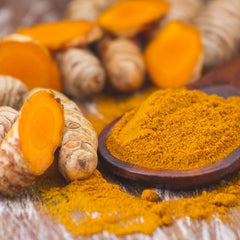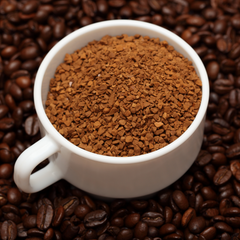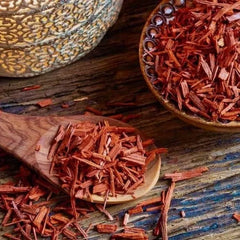Do Oriental Perfumes Smell Exotic?
Click For Affordable Inspired Perfume Alternatives
Perfume has long been regarded as a reflection of culture, personality, and artistry. Among the many categories of fragrances, Oriental perfumes have gained a reputation for their captivating scents and luxurious compositions. But a common question arises: do Oriental perfumes smell exotic? To answer this, it is essential to explore what defines Oriental fragrances, their unique characteristics, and why they are often associated with an exotic allure. In this article, we delve into the essence of Oriental perfumes and uncover whether their smell truly embodies exoticism.
Do Oriental Perfumes Smell Exotic?
Oriental perfumes have fascinated fragrance enthusiasts for centuries. Their rich, warm, and seductive aromas evoke images of distant lands, ancient traditions, and mystical cultures. But what makes these perfumes so distinctive? Are their scents truly exotic? To understand this, we need to examine the ingredients, notes, and cultural influences that shape Oriental fragrances and how they contribute to an "exotic" perception.
Understanding Oriental Perfumes
Oriental perfumes are a category of fragrances that originate from or are inspired by the aromatic traditions of the Middle East, Asia, and North Africa. They are characterized by their opulence, depth, and complexity. Unlike fresh or citrusy fragrances, Oriental perfumes tend to feature warm, spicy, and resinous accords that create a sense of mystery and allure.
- Historical Roots: The use of exotic spices, resins, and precious oils in perfumery dates back centuries in the Middle East and Asia. These ingredients were historically traded along ancient routes like the Silk Road, influencing the development of luxurious scents.
- Common Ingredients: Incense, amber, vanilla, oud, spices (such as cinnamon, cardamom, and cloves), rose, and saffron are staples in Oriental perfumes.
- Fragrance Profile: Usually intense, long-lasting, and enveloping, designed to captivate and allure.
The Components That Define the "Exotic" Scent
Many people associate Oriental perfumes with an exotic smell due to their unique combination of ingredients. These components often evoke images of distant lands and ancient traditions, which contribute to the perception of exoticism.
- Oud (Agarwood): Known as the "wood of the gods," oud has a rich, complex aroma that is both woody and resinous. Its rarity and depth lend an air of mystery and luxury, often associated with the exotic.
- Spices: Ingredients like saffron, cinnamon, cardamom, and cloves introduce warmth and intensity. Their fragrant bursts add a spicy allure that feels both luxurious and adventurous.
- Resins and Balsams: Amber, myrrh, and frankincense provide a sweet, balsamic, and resinous character, enhancing the scent's richness and depth.
- Vanilla and Tonka Bean: These sweet, creamy notes soften the intensity and add a seductive quality, often perceived as exotic due to their association with distant lands.
- Floral Accords: Rose, jasmine, and saffron often combine with spicy and resinous notes to create complex, layered fragrances.
Are Oriental Perfumes Truly Exotic?
The term "exotic" is subjective and often culturally influenced. In the context of fragrances, it is used to describe scents that are unusual, luxurious, and evoke a sense of mystery or distant lands. Oriental perfumes, with their rich ingredient palette and complex compositions, frequently fit this description.
Many perfume connoisseurs and enthusiasts consider Oriental fragrances to be inherently exotic due to their:
- Intense and long-lasting nature, which feels luxurious and indulgent.
- Use of rare and precious ingredients like oud and saffron, often associated with luxury and mystique.
- Historical and cultural associations with ancient trade routes and exotic locales.
- Ability to evoke emotions and imagery of faraway lands, desert caravans, bustling bazaars, and mystical traditions.
However, it is important to note that the perception of exoticism is influenced by personal experience and cultural background. What might smell exotic to one person could be perceived differently by another. Moreover, modern perfumery has adapted these traditional ingredients in contemporary scents, blending them with Western olfactory preferences, which can alter the perception of exoticism.
Examples of Iconic Oriental Perfumes and Their Exotic Appeal
Several fragrances exemplify the exotic allure of Oriental perfumes. Here are some renowned examples:
- Shalimar by Guerlain: A classic Oriental fragrance featuring vanilla, iris, and incense, evoking the romantic and mystical ambiance of ancient India.
- Oud Wood by Tom Ford: Rich oud combined with exotic spices and woody notes, creating a luxurious and mysterious scent.
- Arabian Nights by Amouage: An opulent blend of spices, resins, and florals that transports the wearer to a distant, enchanted land.
- Black Opium by Yves Saint Laurent: A modern take with coffee and vanilla notes, adding a seductive, exotic twist.
These fragrances exemplify how Oriental perfumes can evoke feelings of mystery, luxury, and exoticism through their ingredients and compositions.
How to Choose an Oriental Perfume That Feels Truly Exotic
If you're seeking an Oriental perfume that embodies exoticism, consider the following tips:
- Pay Attention to Ingredients: Look for scents featuring oud, saffron, amber, or spices, as these are often associated with exotic aromas.
- Layering and Personalization: Combine different Oriental scents or add subtle floral or woody notes to create a personalized, exotic fragrance.
- Choose Authentic or Inspired Fragrances: Opt for perfumes crafted with genuine ingredients or inspired by traditional Oriental compositions for an authentic experience.
- Consider the Occasion: Oriental perfumes are often rich and intense, making them well-suited for evening wear or special occasions.
Conclusion: Do Oriental Perfumes Smell Exotic?
In conclusion, Oriental perfumes are often perceived as smelling exotic because of their luxurious, complex, and evocative compositions. Their use of rare ingredients like oud, saffron, amber, and spices creates a sensory experience that transports the wearer to distant, mystical lands. While perceptions of exoticism can vary based on personal and cultural perspectives, the rich history and distinctive ingredients of Oriental fragrances have cemented their reputation as some of the most alluring and exotic scents in the world of perfumery.
Whether you are drawn to their warmth, depth, or cultural mystique, Oriental perfumes continue to enchant and captivate, embodying the very essence of exoticism and luxury in every spritz.
Buy Perfumes - Best Online Retailers
Click For Affordable Inspired Perfume Alternatives
Click For The Best Niche Perfumes & Decants
Pheromone Perfumes - Confidence, Attraction & Appeal - Click For More
Home Fragrances & Candle Warmers - Click To Scent Up Your Spaces Today!



